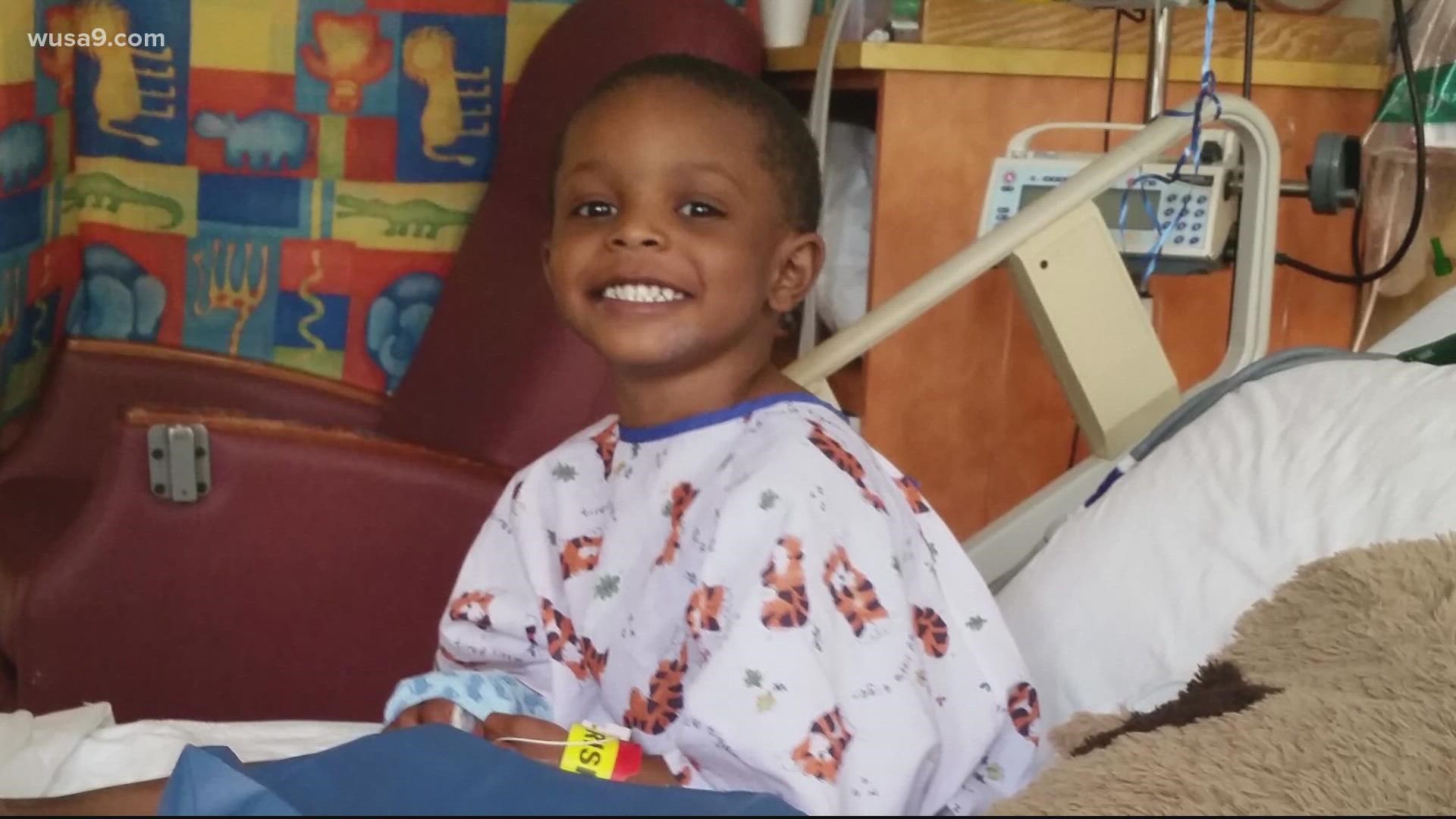WASHINGTON — For decades, asthma has disproportionately plagued Black and African American kids in the nation's capital. A clinic is working to reduce the gap to help kids like Isaiah take control of their breathing.
For 16 months, Nicole Gyimah just enjoyed watching her son Isaiah grow up.
After he was playing outside one day with his sisters, that joy turned to fear.
“[He] came inside, and he didn't feel great, and I knew something was wrong. By the way he was coughing and how he was feeling," Nicole said. "And we rushed him to the emergency room to find out he was in distress and having an asthma attack.”
She said that first ER visit happened while they were living in New Jersey.
About five years ago, the family moved to the D.C. area, and asthma again sent Isaiah to the emergency room.
“It kind of hurts inside on my chest," Isaiah said. "My chest tightens up, and I can't breathe really good.”
This time, Nicole said they connected with the IMPACT DC clinic at Children's National Hospital.
It's an intervention program to help educate families on how to manage their asthma and reduce ER visits.
“Definitely made a huge difference in our lives coming in contact with them, getting, you know that teaching," Nicole said. "Understanding that there are different types of medicines, understanding that there are so many other types of potential triggers."
Some of Isaiah's triggers are a cold and bleach.
Dr. Shilpa Patel, the clinic's medical director, said asthma has disproportionately impacted Black and African Americans for years.
A series of maps the hospital provided shows that the areas with the most kids who are at-risk for asthma-related hospitalizations coincide with the largest Black populations in D.C.
“Unfortunately, even with guideline based care, and many improvements, we haven't been able to create more equity and close the disparity gap," Dr. Patel said. "Most people will point to both structural and social determinants of health in terms of inequity when it comes to housing conditions, when it comes to access to guideline based asthma care.”
IMPACT DC works to educate families and advocate for better housing conditions.
“It can't just be medical care," Dr. Patel said. "I think it has to be legal; it has to be policy driven; it has to be housing, structural education, not only of families, but of physicians who are working with these families in the community.”
Poor housing conditions aren't an issue for Isaiah, but understanding the best way to take his meds has been a huge help.
Now, he's teacher.
He demonstrated how he uses his spacer daily, saying, "Now make sure when you do this type of treatment, you have to have your mouth open when you're breathing it in."
But, he's focused on the future.
“I want to be a professional soccer player, and a business owner-- architect -- and construction worker,” Isaiah said.
The clinic has helped him achieve his --soccer-- goals, and let his mom breathe more deeply, too.
“They really are a blessing," Nicole said.
The clinic works with school nurses to provide them with the medications kids need, so they can make sure the meds they're supposed to be taking actually make it to school.
IMPACT DC also received a grant to study the "September epidemic" for asthma. Dr. Patel said they often seen an uptick in asthma ER visits once kids back to school, and the study aims to look at ways to prevent the exacerbation.
If your family wants to get in touch with the clinic, you can find more information here.
Sign up for the Get Up DC newsletter: Your forecast. Your commute. Your news.
Sign up for the Capitol Breach email newsletter, delivering the latest breaking news and a roundup of the investigation into the Capitol Riots on January 6, 2021.

